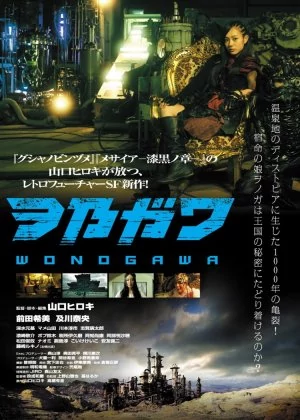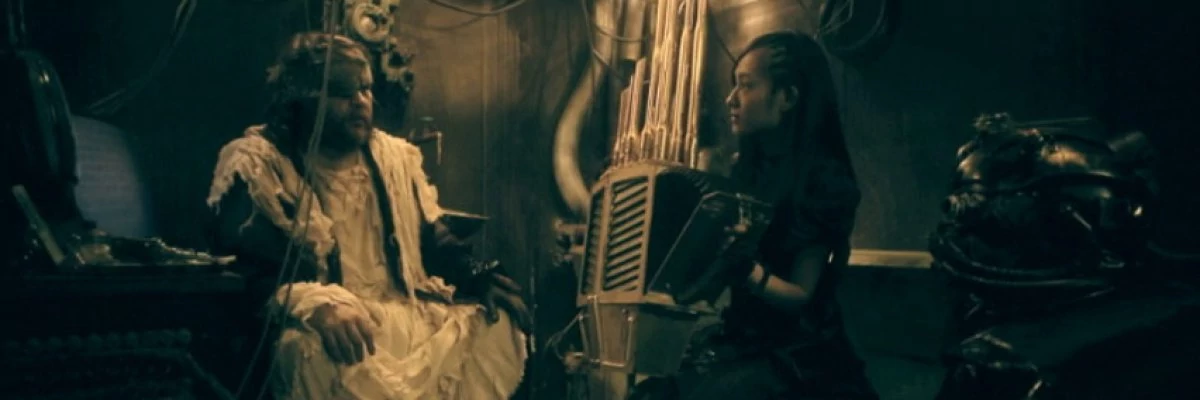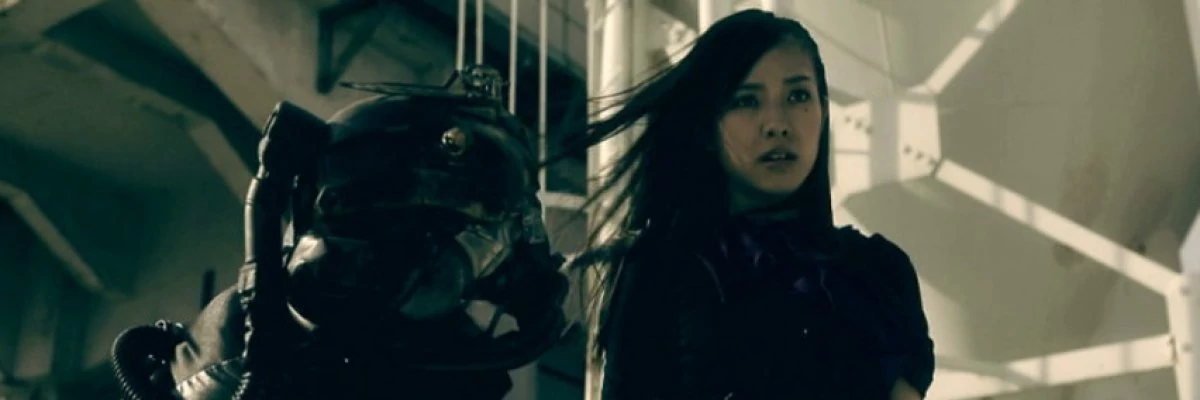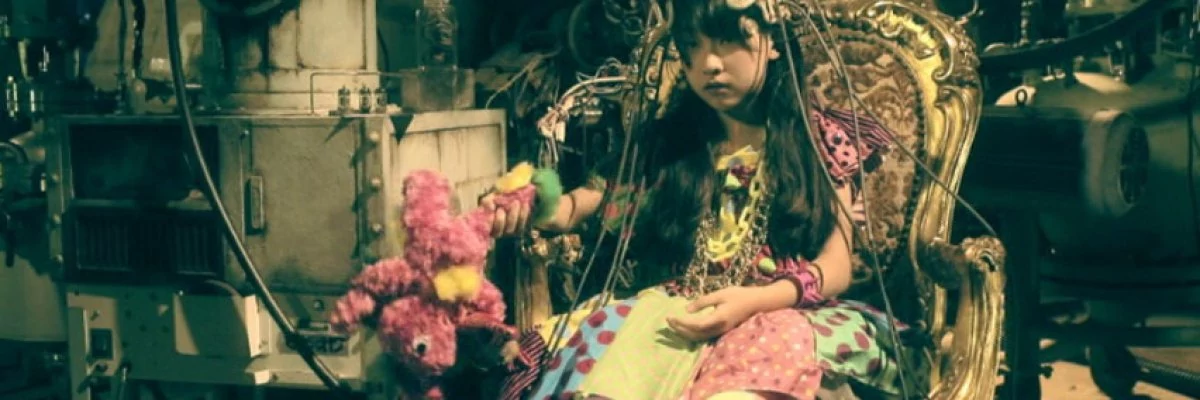Wonogawa

Cyberpunk fans, take notice. If the name Yamaguchi still rings a bell, it's because he made a name for himself as the young and coming director of Hellevator, back in the early 00s. A low-budget, highly inventive and creative sci-fi feature that did well on the international market. Yamaguchi never stopped making films, but the West didn't seem to care. It didn't take long before the work of Yamaguchi was just a distant memory for most, but talent always finds a way. Earlier last week I stumbled upon Wonogawa, a film Yamaguchi directed in 2014 and deserves a lot more love and attention.

Wonogawa belongs to a troubled niche. It's an ambitious mix of dystopian sci-fi, cyberpunk and fantasy, containing tons of futuristic, complex lore that is anything but trivial to expose in a single film. These project tend to have a rather small yet dedicated fan base, but to do justice to all the ideas and concepts here, Yamaguchi would've needed a much (much) bigger budget. Films like Wonogawa always end up best-effort affairs, sporting lots of potential, but forever flawed in their execution. As a fan starved for these films though, the flaws are pretty easy to ignore, others may find it harder to look past them.
I hadn't even heard of this film before last week, though it's been out for 6 years already and I'm in all the right places to learn about these kinds of films. It just goes to show how difficult it remains to keep up with foreign cinema, even with the coverage the internet offers nowadays. But as I said before, these films can't stay hidden forever and eventually they'll find their way to the surface. Wonogawa has the chops to make it as a cult favorite, though it could take many more years to reach before it has reached its full potential audience. At least it won't be for my lack of trying.
The story is set in a distant future. Mankind has brought itself to ruin, the survivors of the apocalypse built a new society from scratch. In order to protect the people from making the same mistakes again, the past has been deemed off limits, but some nosy archeologists just can't help themselves. The government tries to hunt them down, while they scour the Earth for traces of long-lost technology. Wonoga is such an archeologist. She digs up old circuit boards and tries to restore the data on them, but the police is on her tail and though she gets help from a couple of close friends, she won't be able to escape the law forever.

Yamaguchi didn't have loads of money to spend, but did need to create an entire dystopian future from scratch. It's no surprise then that a lot of the film was shot indoors, while most of the establishing shots suffer from some cheap-looking CG. But that is quickly forgotten when you start to notice how much effort and detail has gone into the props and design of the film. The industrial style is grand, the futuristic elements look truly bad-ass (the android helper in particular is amazing) and the sepia-filter adds a lot of atmosphere. While not 100% perfect, it's truly admirable what Yamaguchi accomplished with so few means.
The soundtrack is nothing out of the ordinary, but it is quite effective in helping to establish Wonogawa's dystopian atmosphere. The score is moody, pops up in all the right places and shifts gears whenever needed. It does get a little iffy when action scenes call for more adrenaline-inducing music, but those moments are rare and offset by one or two memorable tracks that surface during the emotional highlights. The sound effects are good too, which is not unimportant for a film like this. While pretty good overall, Yamaguchi doesn't use the full potential of the score, which is a bit of a shame, especially for a low-budget sci-fi.
The cast doesn't have many familiar faces, though fans of Yamaguchi may recognize Luchino Fujisaki (from Hellevator) fame. There are some other lesser gods of Japanese cinema that fill out the cast, but nobody who will draw an audience. It has to be said though that the cast really committed themselves to the film. While there aren't any award-winning performances here, the acting doesn't feel cheap or amateurish either, and it's not like this type of film usually relies on exceptional performances to make a lasting impression. So mission accomplished.

While Wonogawa comfortably belongs within the cyberpunk niche, Yamaguchi didn't stop there. There are also more fantastical details and some very creative variations on familiar elements that make it stand out from its peers. Yamaguchi keeps the audiences guessing and introduces these elements sparingly, without too much fanfare, so you're basically left to yourself to figure out how all the lore connects. By the time the film hits the finale few loose ends are left, but then the ending itself has a big reveal that takes up most of the attention. There's no time to get bored in other words.
It's obvious that Yamaguchi worked very hard to make the most out of Wonogawa, but simply didn't have the means to put on all the finish he wanted. While that may bug some people, films like these are rare enough as it is, and with so many things going right it would be a shame to focus too much on the negative. Wonogawa is a film with superb designs, overflowing with creative ideas, more than enough intriguing lore to fill at least three films and executed in a way that hides most of its financial struggles. A warm recommendation for everyone who feels like a slice of solid cyberpunk, as this film deserves to become a true cult favorite.